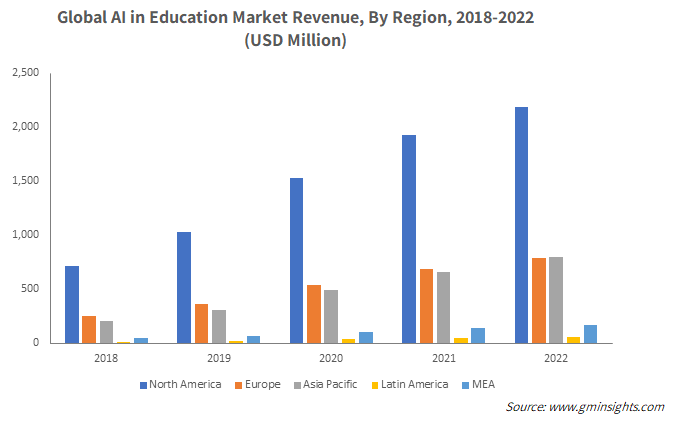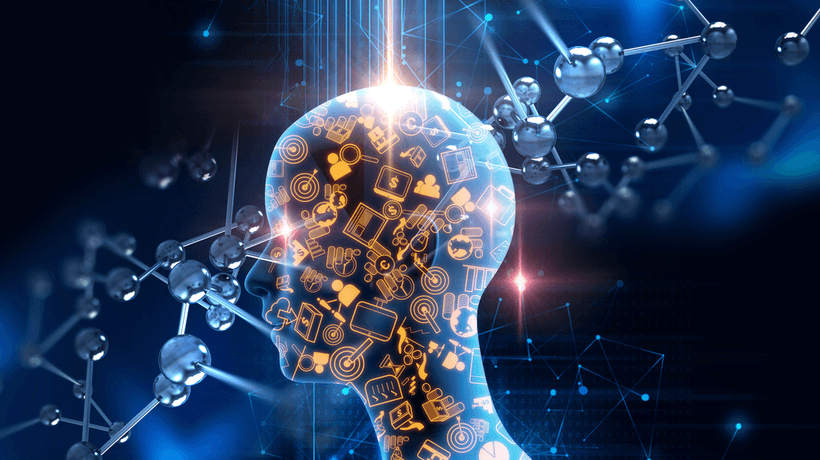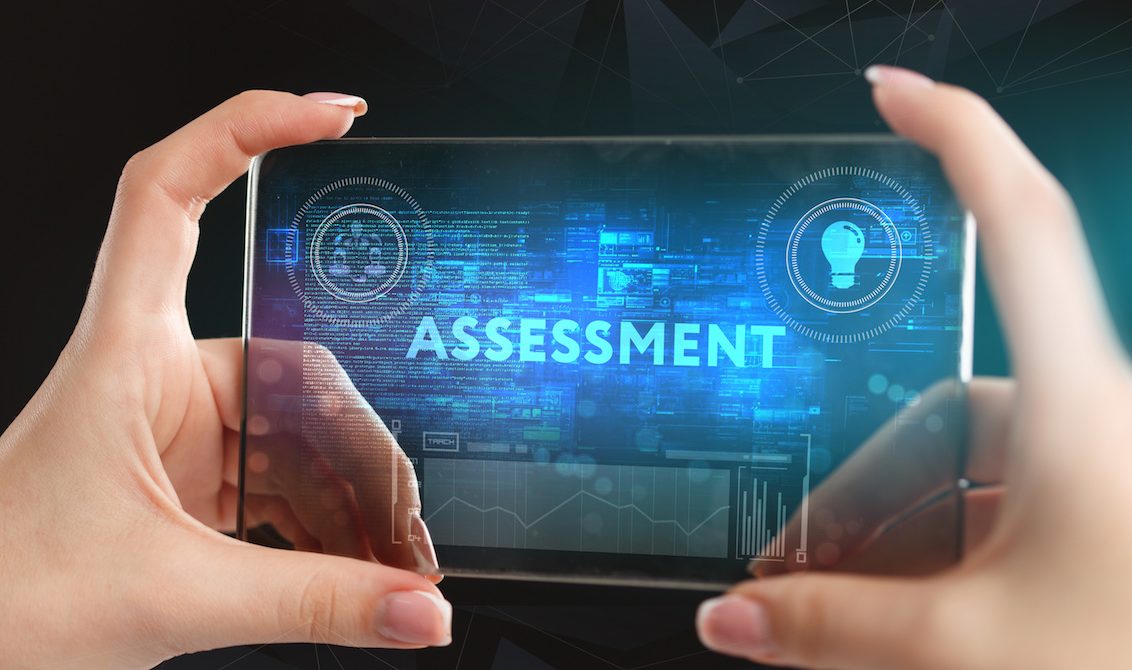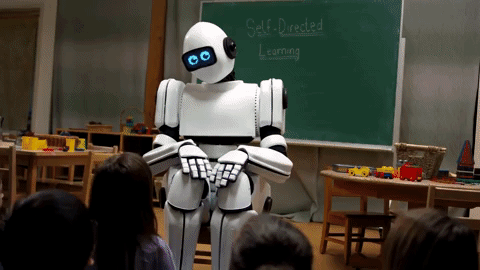The rapid growth of Artificial Intelligence (AI) technology and its tools; have been transforming various industries, and the education sector is no exception. In recent years, the use of AI in the education sector has grown in popularity, with many businesses and educational institutions investing in learning platforms and solutions that AI powers. According to recent statistics published by gminsights global AI in education market revenue by region is as follows.

The use of AI in education can improve teaching and learning, offer more personalized learning experiences, and develop effective ways to measure student development. Large data sets can be analyzed by AI technology, which can also discover patterns and insights and give students and teachers useful feedback. AI has the ability to alter education and the way we teach and learn.
In this article, we will explore the various forms in which AI can revolutionize the education sector.
Personalized Learning

Personalized learning is one of the most significant advantages of AI in education. Students' learning habits and patterns can be analyzed by AI algorithms, which allows them to offer individualized learning plans that are customized to each student's needs. Educators may design learning experiences that adjust to the pace, style, and level of comprehension of each student with the aid of AI-powered technologies.
For instance, adaptive learning algorithms are used by AI-powered educational platforms like Knewton and DreamBox to design unique lesson plans for each student. These systems make use of data analytics to comprehend students' preferred learning methods and modify the content's level of difficulty accordingly.
Automated Assessments

AI-powered assessments are another significant benefit of AI in education. AI algorithms can evaluate student performance more efficiently and accurately than traditional methods. Automated assessments can grade assignments, and essays, and even detect plagiarism, saving educators a significant amount of time and effort.
Moreover, AI-powered assessments can also provide more detailed feedback to students, identifying specific areas of improvement and suggesting personalized learning programs. This type of feedback can help students improve their learning outcomes and achieve their academic goals.
Smart Content

AI is also changing education through the development of smart content. Large data sets may be analyzed by AI algorithms to find patterns and insights that can be applied to the development of more effective educational materials. As an illustration, AI-driven content creation systems may assess student input and produce individualized material that caters to their particular requirements.
In addition, educational technologies driven by AI can provide dynamic and interesting content to keep students interested in their lessons. With the use of these tools, learning can be made more enjoyable and engaging by creating simulations, gamified learning experiences, and immersive virtual reality settings.
Challenges and Limitations
Although AI provides numerous advantages for education, several challenges and limitations must be overcome. The lack of confidence among instructors and students in AI technology is one of the biggest obstacles. Many individuals are wary of using AI in education for fear that it may eventually supplant human instructors.

Additionally, there are worries about the prejudice and ethical issues connected with evaluations driven by AI. Some detractors contend that automated evaluations could reinforce prejudice and discrimination, particularly if the algorithms are not properly developed and validated.
In conclusion, AI has the potential to revolutionize education and transform the way we learn and teach. With personalized learning, smart content, and automated assessments, AI-powered tools can enhance the quality of education and improve student outcomes. However, we need to address the challenges and limitations associated with AI in education, such as bias and ethical issues, to ensure that we can fully realize the potential of this technology. Stay tuned for more!


